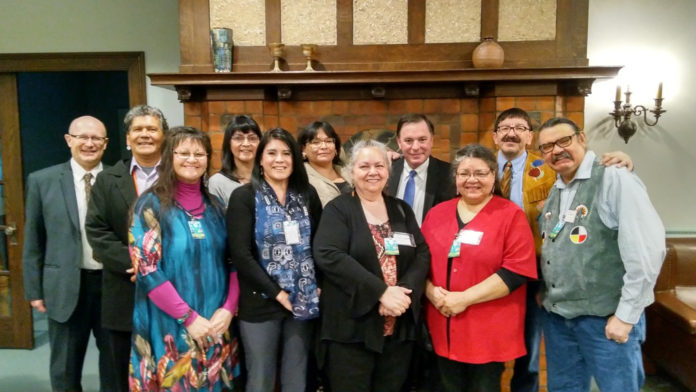
Members of a ’60s Scoop survivor advocacy group say they are pleasantly surprised with how the provincial government has responded to a day of protests held last month.
On March 16, ’60s Scoop survivors and their supporters held a day of action across Canada, calling on provincial governments to offer apologies for their role in the tragedy.
Roughly a month later, the first follow up meeting was held in Regina between the Saskatchewan government and members of ’60s Scoop Indigenous Survivors Saskatchewan (SSISS). The meeting marks one of the first steps towards an apology, and for SSISS board members, it’s an encouraging one.
“I don’t believe that this is going to be a quick process, but I believe that the door is open now for forward momentum, and I thank the government of Saskatchewan for that,” SSISS member Robert Doucette said.
Doucette was one of nine SSISS members who attended a roughly two hour meeting with Deputy Premier Gord Wyant and First Nations, media and Northern Relations Minister Warren Kaeding on Tuesday. The meeting was set up at the request of the provincial government following the day of action on March 16.
During the meeting, members shared their personal stories on how the Sixties Scoop impacted their lives, which is something the organization believes is vital to any future reconciliation.
“Deputy Premier Gord Wyant and Minister Kaeding showed a lot of respect for the survivors by listening to their stories, to the issues that they faced as ’60s Scoop Survivors, and I think that by doing that, they opened up that initial door for reconciliation,” explained Doucette, who was taken from his family in 1962. “That’s one of the first steps—actually listening to the stories.”
While the meeting was encouraging, Doucette was quick to emphasize that this is the first step in a long process. As much as he appreciates the efforts “to walk in our moccasins and to understand what happened,” there will need to be more meetings and more discussions down the road.
Ideally, he’d like to see the Saskatchewan government do a community consultation tour, similar to what the Alberta government did for survivors between Jan. 18 and March 1, and eventually give an official apology.
For now, however, he’s just happy to see a solid first meeting.
“It shows that there is a willingness now to deal with this issue,” Doucette said.

